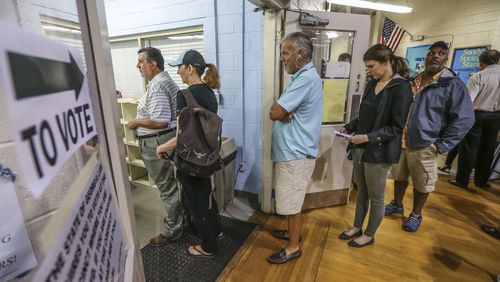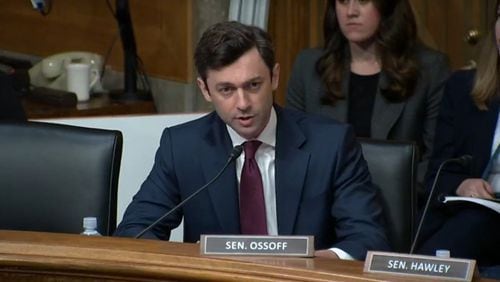President Donald Trump's commission on election integrity has yet to agree to pay the required $250 fee to receive Georgia's public voter data, although state officials confirmed they have received its request for states to hold off on sending anything while a judge considers a legal complaint against them.
The delay comes as the Washington-based Electronic Privacy Information Center has asked a federal court to grant at least a temporary restraining order as part of a lawsuit seeking to stop the commission from gathering the data. It’s one of at least three federal lawsuits the commission faces.
The commission, formed by Trump in May to investigate unsubstantiated reports of voter fraud in last year's presidential election, had sent a request two weeks ago for all states' voter-roll data, including name, address, date of birth, party affiliation, last four Social Security number digits and voting history.
Georgia law allows it to collect information such as voter names, addresses, race and gender, among other data points — information that more than 600 groups including both major political parties have also requested in the past 18 months.
Georgia will not share information, however, considered private under state law such as registered voters' driver's license numbers and Social Security numbers. Since the ballot is secret, there are no records that show who a person voted for in any election.
And it won’t send anything unless the commission pays the standard fee, which is required of anyone who requests the public voter file.
The commission's work coincides with a separate request by the U.S. Justice Department, which is seeking material from at least 44 states including Georgia about how they remove voters from the rolls who should no longer be eligible to vote.
Civil rights groups including those in Georgia have raised alarms about both requests, saying they fear the collected information could be used to purge voting rolls and make it harder to register to vote.
About the Author







